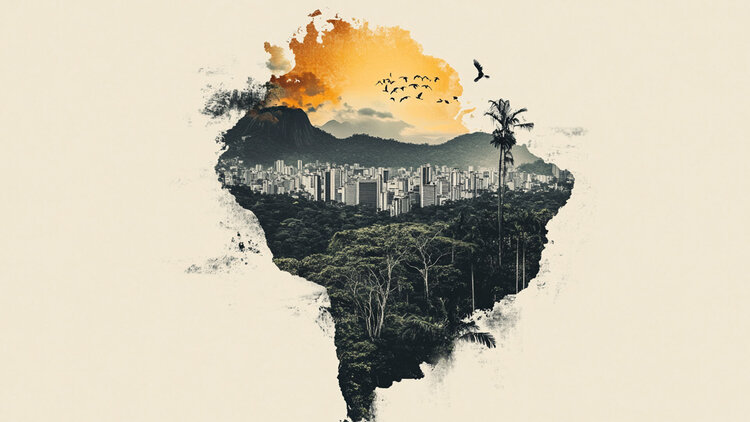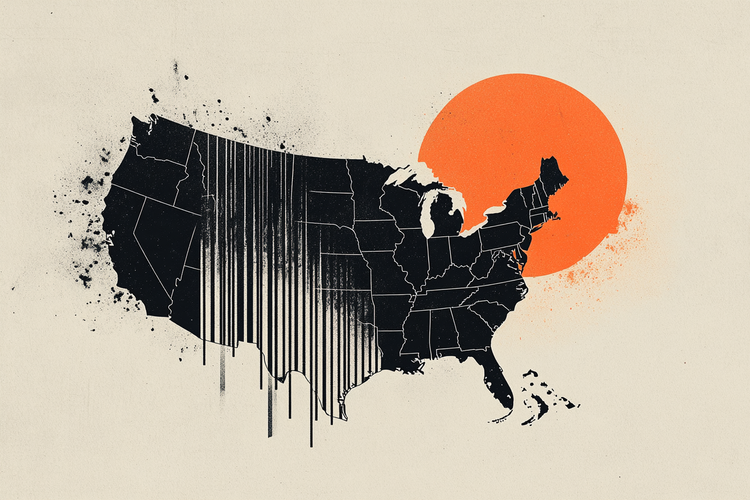Ecuador is experiencing a wave of violence, including attacks on bombs, kidnappings of police officers and the invasion of a television network by armed men.
The actions and clashes with criminal groups led President Daniel Noboa to declare that the country is in an “internal armed conflict” and to order the Armed Forces to carry out military operations to “neutralize” groups identified as terrorists.
In addition to violent attacks, several prison escapes were reported. One of the criminals who escaped is Fabricio Colón Pico, known as “Capitán Pico”, alleged leader of the Los Lobos gang. He escaped from Riobamba prison, according to the city's mayor, Jhon Vinueza.
Days ago, Pico had been publicly identified by Ecuador's prosecutor, Diana Salazar, as suspected of participating in a plan to attack her. On Wednesday afternoon, the Ecuadorian Public Prosecutor's Office requested a hearing to formulate charges against “Captain Pico”.
Colón Pico was arrested on January 5, in Quito, with a preventive detention order that he was serving in the Riobamba city prison for his alleged participation in the crime of kidnapping, as confirmed by the Public Ministry.
Along with Colón Pico, another 38 prisoners escaped, of which 12 were recaptured, he told CNN the National Service for Comprehensive Care for Adults Deprived of Liberty (SNAI).
According to the Police, he faces around 20 charges for various crimes, including: organized crime, illicit association, possession of unauthorized firearms, qualified robbery, organization or financing for the production and trafficking of scheduled substances subject to control, intimidation and arms trafficking.
Authorities are offering a reward for information leading to his whereabouts.
Who are Los Lobos, the criminal gang from “Capitán Pico”?
Los Lobos emerged as a dissident from the criminal group Los Choneros and became the second most important criminal organization in Ecuador, with almost 8,000 members, according to the criminal investigation center Insight Crime.
Since 2021, the group has allegedly committed several violent episodes in Ecuadorian prisons and played a leading role in the escalation of violence in the country.
The main characteristic of Los Lobos, according to the source, is that they are in charge of a federation of small gangs, which includes the Tiguerones and the Chone Killers, as a result of the weakening of the Los Choneros gang.
Los Lobos and their allies are often identified as importers of criminal tactics that Ecuador has rarely seen, Insight Crime points out, such as brutal prison massacres, normalization of murderers, use of car bombs, mass attacks on police and display of hanged corpses in bridges like messages from the mafia.
This supposed federation allowed Los Lobos to face Los Choneros and, according to Insight Crime. Furthermore, the group has “unproven links” with the Mexican Cartel Jalisco Nueva Generación and the Frente Colombiana 48.
According to the Primicias portal, cited by the same source, Los Lobos' main criminal activity is the transport of Colombian cocaine to the United States and Europe.
Its main source of income is concentrated in this activity, as almost a third of Colombian cocaine leaves South America through Ecuadorian ports, according to Insight Crime.
However, in late 2022, authorities discovered cocaine processing laboratories, which could indicate the evolution of gangs like Los Lobos – and also their rivals, Los Choneros – to the status of “microcartels”.
Insight Crime also attributes activities related to the illegal mining business to Los Lobos, charging for minerals extracted from a gold mine it controls in the province of Imbabura.
Once coordinated, Los Lobos and these small gangs became known as the New Generation, in reference to their alleged connection to the Mexican cartel.
Its base of operations is in the cities of Latacunga, Cuenca and Machala, in addition to the country's penitentiaries, according to Insight Crime.
Los Lobos is one of the Ecuadorian gangs that contributed to increasing Ecuador's participation in cocaine trafficking, according to authorities.
Crisis in Ecuador
The wave of violence in Ecuador intensified after the leader of the criminal group Los Choneros escaped from a prison in Guayaquil, on Sunday (7). A day later, President Daniel Noboa declared a state of emergency in the country.
On Tuesday afternoon (9), a group of hooded and armed men invaded the facilities of the TC Televisión channel, in Guayaquil.
The crime was captured on live broadcast, which showed employees being forced to lie on the floor. It was possible to hear gunshots and screams. In an operation to free the employees, the police arrested 13 people and seized weapons and explosives.
Still on Tuesday night, President Daniel Noboa decreed the existence of an “internal armed conflict” in the country and ordered operations to be carried out by security forces to neutralize criminals.
In the text of the decree, the government also describes 22 organized crime groups as “terrorists and belligerent non-state actors”.
According to the Ecuadorian government, more than 170 prison guards and other employees are held hostage by inmates in at least five prisons in the country.
In addition, several attacks and explosions were recorded, and hundreds of people were detained.
*with information from Sebastián Jiménez Valencia, Germán Padinger, Stefano Pozzebon, Ana María Cañizares, Germán Padinger and Karol Suárez, from CNN
Source: CNN Brasil
Bruce Belcher is a seasoned author with over 5 years of experience in world news. He writes for online news websites and provides in-depth analysis on the world stock market. Bruce is known for his insightful perspectives and commitment to keeping the public informed.







